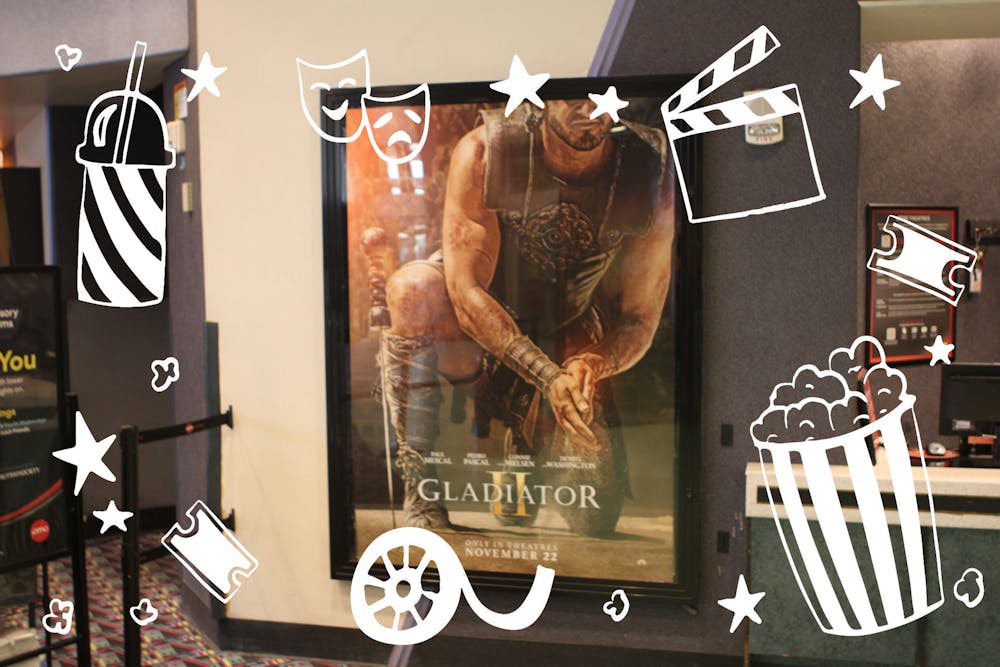"Gladiator," the Roman epic centered around gladiatorial fights and influential themes, returns to the big screen with a sequel that, while trying to diverge from its predecessor, ends up reenacting much of what we've seen before.
The film hones in on revenge and the classic Sir Ridley Scott spectacle. He's known for his world-building, as seen in his filmography with the Alien franchise and Blade Runner. However, "Gladiator II" doesn't take its time to flesh out this world we haven't seen in nearly two decades.
Characters we are meant to mourn and react to are quickly taken out of the picture — from what is most closely described as shock value — and each character's motivations change so dramatically without cause that the audience is left questioning the validity of their arcs.
Scott understands what the audience wants to see, and they are entertained. The all-star cast consisting of Paul Mescal, Connie Nielsen, Pedro Pascal and Denzel Washington — who steals the show with his humorous and frightening portrayal of Macrinus, an owner of gladiators — takes the sequel to new heights. Mescal's vicious fight scenes as Lucius are later met with solemn moments that he performs with the talent of a well-versed actor.
In the bloody action, viewers will see the Colosseum get flooded, a trained rhino and baboons within their theater experience. While the historical inaccuracy is appalling, it's one of many things the audience shouldn't care much for, since ultimately it is a drama and not a documentary.
When the film takes a step away from the brutal, adrenaline-filled action within the Colosseum grounds, the conversations are complemented by close-up framing, creating an intimate connection between the audience and the characters presented.
The camera stays uncomfortably close, showing every blink, drop of sweat and glimmer of emotion during these memorable moments. This was the driving, emotional spark the movie needed to succeed, but the dialogue itself falls short, especially when some of the cast delivers awkward dialogue.
What is lost is its essence. While revenge is a driving theme in the first film, and is very prevalent in this sequel with Lucius Verus, there are many other themes that "Gladiator" tries to discuss: sacrifice, nobility and honor.
"Gladiator II" attempts to cover these themes but never truly shows them. The audience can only really see Lucius, who is meant to act as the protagonist, as a blank slate; someone who goes where the plot tells him to go and acts how he should whenever it is convenient for the film.
Maximus, played by Russell Crowe in the first "Gladiator," embarks on a similar journey, but the viewer also understands his motivations very clearly in the first half of the film. We know what he plans to do, and his intent never falters.
The second film doesn't give its protagonist a place to put this anger. Instead, we are given a character who is representative of the plot — only killing and moving where the story takes him.
In fact, the plot of the first movie is increasingly prevalent in this sequel until the second half of the film, when "Gladiator II" goes off the rails and the crew remembers they have to produce something new.
This sequel loses itself in the cinematic landscape and fails to live up to the original, which in of itself would be near impossible to do.
"Gladiator II" is an entertaining epic about Ancient Rome, but if the audience is looking more for the complexity and rich plot of the first film, they would be severely disappointed.
Rating: ★ ★ ★ ☆ ☆
Edited by Andrew Dirst, Abigail Beck and Natalia Jarrett.
Reach the reporter at gheadle@asu.edu and @George_Headley7 on X.
Like The State Press on Facebook and follow @statepress on X.
George is a sophomore studying journalism and mass communication. This is his third semester with The State Press. He has also worked at Times Media Group.




